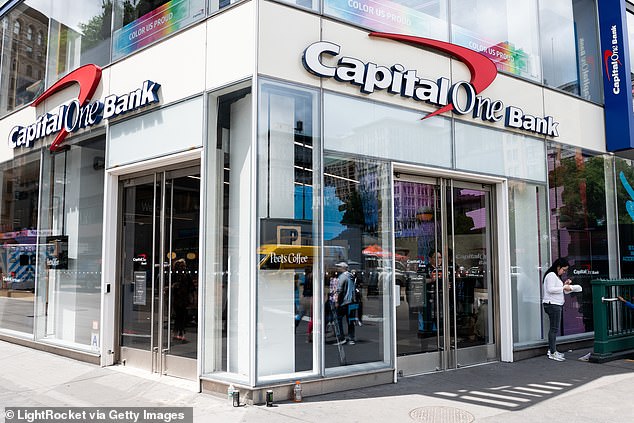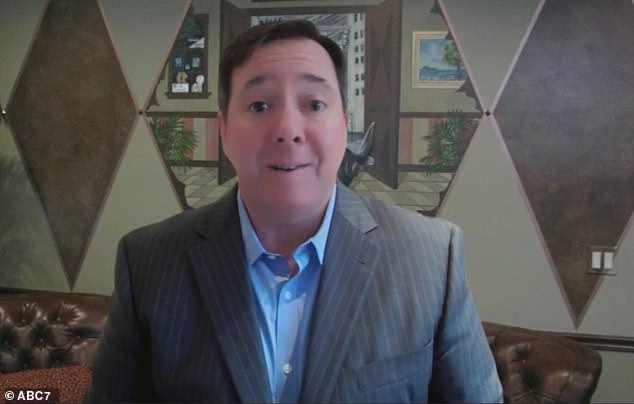The latest financial figures have shown that the crisis will be increasingly felt by millions of Americans in the coming months.
The combined debt of American households soared to a record $17.5 trillion in the final three months of 2023, and inflation has spread across all sectors of the United States.
At the same time, a staggering 80 percent of Americans now find themselves with less cash in reserves than before the pandemic hit.
Financial expert Craig Bolaños, CEO of Illinois-based Wealth Management Group, spoke with an ABC affiliate in Chicago about some tips on how to save hundreds of dollars a year.
Bolaños, whose company offers investment management services, says the obvious starting point for saving money is opening a savings account.
Craig Bolaños, CEO of Illinois-based Wealth Management Group, appeared on ABC Chicago to offer some tips on how to save money during a stressful financial period for Americans.
And while record-high interest rates make it harder to borrow money for cars, mortgages, and everything else, they have a clear benefit.
Bolaños points out that savings account rates are the highest in 15 years.
‘I want everyone to open a savings account or a high-yield savings account along with that checking account and start earning extra interest.
Major banks and financial institutions such as Capital One, American Express and Barclays offer high-yield savings accounts with annual percentage returns of up to 4.35 percent.
In practice, if you put $500 in a savings account with an interest rate of 4.35 percent and left it for a year without a single contribution, you would have $776.48 at the end of that year.
If you increase your monthly contributions to just $20, as Bolaños suggests, your $500 would become $3,786 after one year.

Capital One Bank offers a 4.25 percent APY for select savings accounts
Of course, savings are only one side of the problem.
Bolaños took a page from Dave Ramsey’s playbook and said spending is the other behavior Americans need to change to keep more cash in their pockets.
First, streaming services, for which Americans pay an average of $61 a month, according to a Deloitte report.
Bolaños says that if you eliminate even one service, you could save about $15 per month, which would turn into $180 over the course of a year.
Netflix and Disney+ are among the largest streaming services, and their ad-free tiers cost $15.49 and $13.99, respectively.
It’s also important to cut back on takeout and coffee at places like Starbucks, Bolaños says. Eating out one or two fewer nights of your favorite sweet, caffeinated beverage could save about $12 per month, or $144 per year.

Bolaños says that if you eliminate even just one streaming service, you could save about $15 per month, which would turn into $180 over the course of a year.

Eating out one or two fewer nights of your favorite sweet, caffeinated beverage could save about $12 per month, or $144 per year.
Finally, Bolaños recommended researching your insurance before simply renewing it when you receive a renewal notice in the mail.
This goes for health insurance, auto insurance, homeowners insurance, and really any other type of plan you can buy.
If you do this, Bolaños says you could save up to 20 percent a month.
Looking ahead to 2024, Americans appear to be heeding advice to reduce their spending.
A Wells Fargo survey February 2024 found that 67 percent of Americans are actually cutting back on their spending.
Still, a solid 35 percent say they have dipped into their savings or investments to cover costs, and an even larger share (62 percent) say they have little left for “extras” after paying the bills.
“The data tells us that Americans – no matter who they are – are uncertain about the sustainability of their financial lives,” said Michael Liersch, head of Wells Fargo Counseling and Planning.

